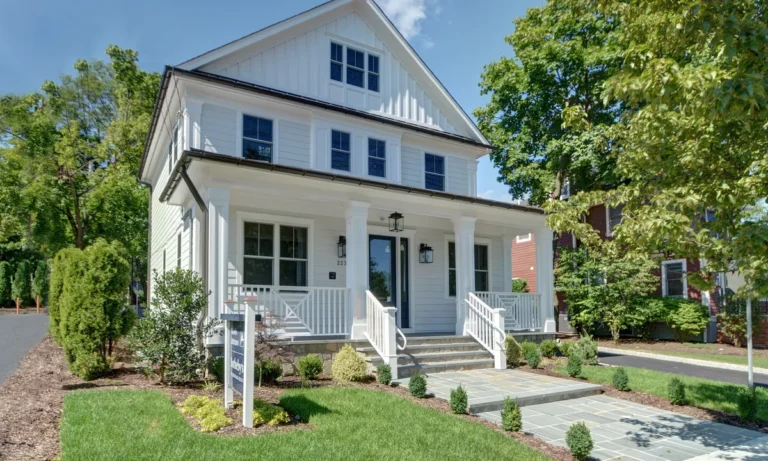In 2010, Chris Clark made a modest investment—he bought the domain name “Pizza.com” for just $20. At the time, it seemed like a fun little purchase, maybe something he could sell for a few hundred dollars later. However, as the internet grew and more businesses went online, Clark realized he was sitting on a virtual goldmine. Eight years later, he sold “Pizza.com” for $2.6 million. That story is becoming more common as digital real estate—essentially, property on the internet—has exploded in value. Whether it’s domain names, websites, or even virtual land in the metaverse, what is digital real estate has become one of the most lucrative frontiers of investment in the 21st century. So, what exactly is digital real estate, and why is it so valuable?
What is Digital Real Estate?
Digital real estate refers to the ownership of virtual assets in the online world. Just like physical real estate consists of tangible properties like houses, buildings, or plots of land, digital real estate encompasses online properties that hold value. These properties can include:
- Domain Names – Unique website addresses that, in some cases, sell for millions.
- Websites – Established websites with traffic can generate revenue through ads, affiliate links, or product sales.
- Social Media Handles – Prime usernames on platforms like Instagram and Twitter that can drive business or brand engagement.
- Metaverse Properties – Virtual lands in online worlds like Decentraland, The Sandbox, or Roblox, where people buy, sell, and develop spaces just as they would in the real world.
Digital real estate is valuable because of its limited supply, revenue potential, and growing demand. According to Datareportal, about 63% of the global population (5 billion people) is online as of 2023, creating an enormous market for virtual properties.
The Rise and Growth of Digital Real Estate
The concept of digital real estate has gained traction over the last two decades, fueled by the rapid expansion of the internet and digital platforms. Domains like “Cars.com” ($872 million) and “Insurance.com” ($35.6 million) have sold for eye-watering amounts because they tap into high-demand industries (source: Recode, Domain Name Journal). Prime digital real estate becomes increasingly valuable as more people and businesses go online.
The rise of the metaverse has added another layer to this trend. In 2021 alone, virtual real estate sales across the metaverse platforms Decentraland and The Sandbox totalled over $500 million, and some analysts predict that this market could reach nearly $5 billion by 2026 (Technavio). Large brands such as Nike, Gucci, and Adidas have also begun investing in digital properties on metaverse platforms to establish a presence where younger audiences spend their time (source: CNBC).
Why Digital Real Estate is Valuable
Several factors contribute to the rising value of digital real estate:
- Scarcity: Just like physical land, high-quality digital real estate is limited. Only so many memorable, short, and keyword-rich domain names are available. Similarly, popular areas in the metaverse, which are highly trafficked by users, are limited and thus come at a premium.
- Revenue Generation: Digital properties can generate substantial income. For instance, a well-trafficked website can bring in thousands of dollars monthly through advertising and affiliate marketing. Virtual spaces in the metaverse can be rented out to brands or used to host paid events, creating a recurring revenue stream.
- Brand Visibility: Owning digital real estate is also a way for brands to enhance their online presence. A prime domain name or a virtual storefront in a busy metaverse neighbourhood can help companies reach their target audience effectively. For example, Adidas purchased land in The Sandbox to create an immersive experience for fans, a move designed to increase brand loyalty and engagement.
Examples of High-Value Digital Real Estate
Some notable examples of profitable digital real estate deals include:
- Domain Names: The domain “Voice.com” sold for $30 million in 2019, a record-breaking deal that underscores the value of a simple, memorable web address (source: Business Insider). Short, descriptive domain names are valuable because they are easy to remember and tend to rank better on search engines.
- Websites and Blogs: Established websites with a loyal following, like TechCrunch or The Huffington Post, have sold for millions because of their high traffic and advertising revenue potential. Websites are attractive investments because they can consistently generate income through ads, sponsorships, and subscriptions.
- Metaverse Land Sales: In 2021, a single plot of virtual land in Decentraland sold for $2.4 million, demonstrating the intense demand for digital property within virtual worlds (source: The Verge). As more people spend time in the metaverse, the value of these digital spaces continues to rise, with plots located near high-traffic areas commanding top dollar.
- Social Media Accounts: Social media handles with short, common names are valuable digital real estate pieces. Influencers and brands invest in high-value handles to boost their online presence. These accounts are sometimes bought and sold in private transactions, especially if they have a substantial following.
How to Get Started in Digital Real Estate
For those looking to get involved in digital real estate, here are some popular starting points:
- Domain Investing: Platforms like GoDaddy and Namecheap allow you to buy domain names that might be valuable in the future. Some investors focus on niche keywords or trending industries, hoping to sell to an interested buyer down the line.
- Buying Websites: Websites with existing traffic can be purchased on platforms like Flippa. Look for websites with a steady revenue stream and growth potential—these can often be flipped for a profit after some optimization.
- Investing in the Metaverse: Platforms like Decentraland, The Sandbox, and Cryptovoxels offer opportunities to buy virtual plots of land. Just like in real-world real estate, the location of these plots matters. Properties close to popular areas tend to be more valuable.
- Building a Social Media Brand: Another form of digital real estate is building a social media presence. Accounts with large followings can earn income through sponsored content, affiliate marketing, and brand partnerships.
Risks and Challenges in Digital Real Estate
Despite its potential, digital real estate also comes with risks:
- Market Volatility: The value of digital assets can be highly speculative, especially in the metaverse. As in the stock market, values can fluctuate based on trends, demand, and market sentiment.
- Cybersecurity: Digital properties are vulnerable to cyberattacks. A website or virtual land can be hacked, and without proper security, the value of these assets could be compromised.
- Legal Uncertainty: The legal framework around digital assets, particularly in the metaverse, is still evolving. Property rights in virtual spaces may not be as clearly defined as those in the physical world, leading to disputes and potential losses for investors.
The Future of Digital Real Estate
The future of digital real estate looks promising, with analysts predicting rapid growth. According to Grand View Research, the global market for virtual real estate could grow at a compound annual growth rate (CAGR) of 31% from 2021 to 2028. As technology advances and more people spend time in online environments, the demand for virtual properties will likely increase.
Additionally, hybrid models that merge digital and physical experiences are emerging. For instance, some real estate companies now offer augmented reality (AR) tours for physical properties, allowing prospective buyers to experience properties remotely.
Conclusion
Digital real estate is a fascinating and evolving sector that mirrors many aspects of traditional real estate but has unique opportunities and risks. As the world becomes increasingly digital, owning a piece of the virtual landscape can be incredibly lucrative, whether it’s a premium domain, a high-traffic website, or a plot of land in the metaverse. Like any investment, it requires research, strategy, and a willingness to adapt to the fast-changing digital landscape. But for those willing to dive in, digital real estate offers a new way to generate wealth in the 21st century.
















